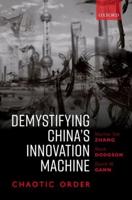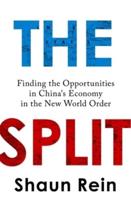Publisher's Synopsis
'The Gulf-Caribbean Blueprint' unveils the dynamic and evolving partnership between the Gulf Cooperation Council (GCC), the Caribbean Community (CARICOM) and their surrounding related nations. This groundbreaking work, authored by Dr. Raona REFIT, a seasoned expert in both regions, delves into the intricate web of diplomatic, economic, and cultural exchanges that are shaping a new era of South-South cooperation. Drawing upon decades of experience and rigorous academic research, this book offers a comprehensive analysis of the historical foundations, contemporary initiatives, and future potentials of this unique alliance. From the pivotal role of the UAE-Caribbean Renewable Energy Fund to the strategic framework of the GCC-ACS Action Plan 2023-2027, readers will gain extensive information on past and existing UAE-CREF renewable energy projects
Explore the rich potentials in economic trade, cultural innovation, and knowledge exchange that defines this partnership. Discover how the impactful stakeholder partnerships of EON-Reality University of the West Indies, R.E.F.I.T Consulting and Moneague College are transforming education in selected Caribbean and Gulf countries. Read about burgeoning Caribbean arts and entertainment scene thriving in the Gulf, luxury travel and eco-tourism innovations being provided by a plethora of Caribbean and Gulf trailblazing organizations and small business entrepreneurs.
Analyse the development of cutting-edge medical tourism Cayman and Dubai Healthcare City initiatives taking place in the Caribbean and Gulf nations which are boosting wellbeing, economic growth and patient outcomes. Be enlightened as you read about futuristic developments in urban farming business initiatives in Caribbean and Gulf Countries
Beyond the tangible achievements, 'The Gulf-Caribbean Blueprint' critically examines the theoretical and philosophical dimensions of this special relationship. Through the lens of international trade theories, educational and cultural development, the book analyses the power dynamics and economic interdependencies that shape these interactions. It also considers the ethical implications of interregional cooperation, exploring the potential for these partnerships to contribute to a more equitable global order.
This book is an essential resource for policymakers, academics, business leaders, and cultural enthusiasts eager to explore the transformative power of interregional collaboration. It sparks wanderlust, encouraging a deeper appreciation for the diverse landscapes and experiences offered by both regions. It broadens understanding of the intricate relationships between business, economics, political science, travel, and cultural studies, demonstrating how these disciplines intersect to shape international relations and foster sustainable development.










